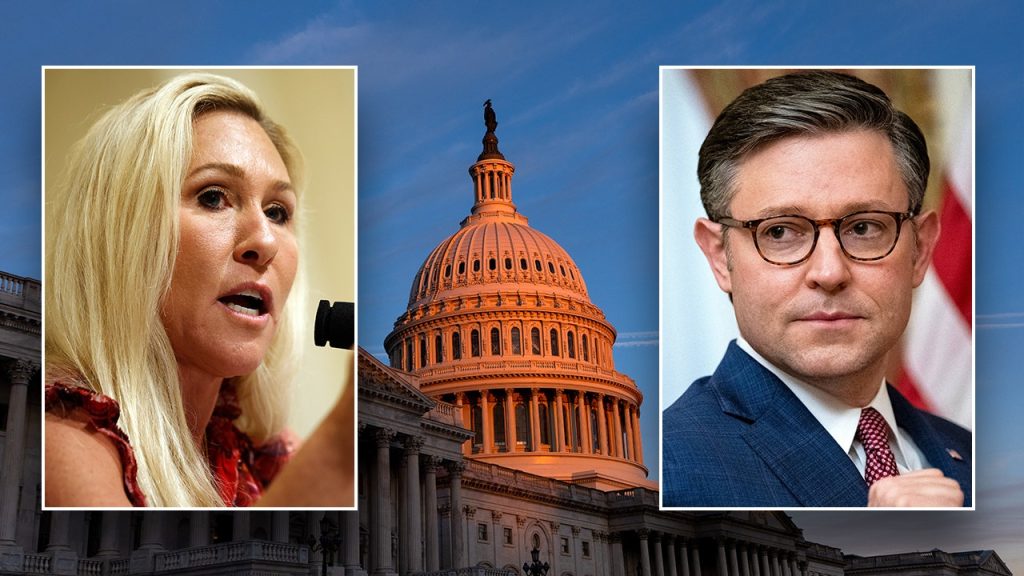House Speaker Mike Johnson, R-La., has faced numerous threats from Rep. Marjorie Taylor Greene, R-Ga., who has threatened to introduce a resolution to unseat him from his position. Despite this, Greene has not yet taken action on this front. Greene had initially planned to initiate her resolution in mid-March, but she is holding back and waiting for Johnson to make the first move. Greene has expressed her desire to get members on the record to show who supports Johnson and who opposes him. A prospective vote on Greene’s motion could reveal the level of support Johnson has and the potential impact such a vote could have on future political events.
House Republicans are currently embroiled in a power struggle that has left many feeling frustrated and exhausted by the ongoing drama. Most House Republicans are opposed to Greene’s efforts to unseat Johnson and do not want to contribute to further chaos within the party. Some Republicans, such as Rep. Paul Gosar, R-Ariz., have expressed concerns about the timing of Greene’s potential resolution. Johnson himself has acknowledged the negative impact that the conflict is having on the party and the country.
Democratic leaders have announced their support for Johnson to help him fend off the challenge from Greene. House Minority Leader Hakeem Jeffries, D-N.Y., has indicated that Democrats will assist Johnson using a parliamentary maneuver. While there are significant differences between Democrats and Johnson, Democrats believe they have received what they need from Johnson in terms of funding for Ukraine and spending deals. This support from Democrats has served to exacerbate the turmoil within the Republican Conference.
The ongoing power struggle within the House of Representatives may have far-reaching implications for the future, especially if Republicans maintain control of the House in the upcoming elections. The lengthy process of electing a speaker in January 2023 has highlighted the challenges that can arise when the House is deadlocked over selecting a leader. This situation could become even more complicated in January 2025 when the 119th Congress convenes. The necessity of certifying the Electoral College results could further exacerbate the situation if the House cannot conduct a Joint Session of Congress due to a lack of a Speaker.
The potential consequences of the current turmoil within the House Republican Conference are significant, as they could have a cascading effect on future political events. The division within the party over Johnson’s leadership has created a sense of uncertainty and instability that could have implications for the upcoming elections and beyond. As the power struggle between Greene, Johnson, and other House Republicans continues to unfold, the future of the party and the House itself hangs in the balance. The ongoing conflict underscores the challenges of navigating internal party dynamics and maintaining stability within the legislative branch of the government.


